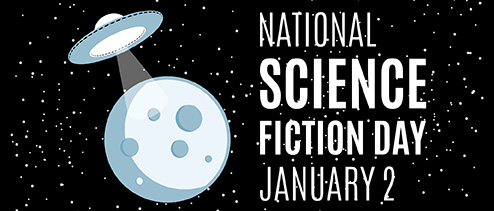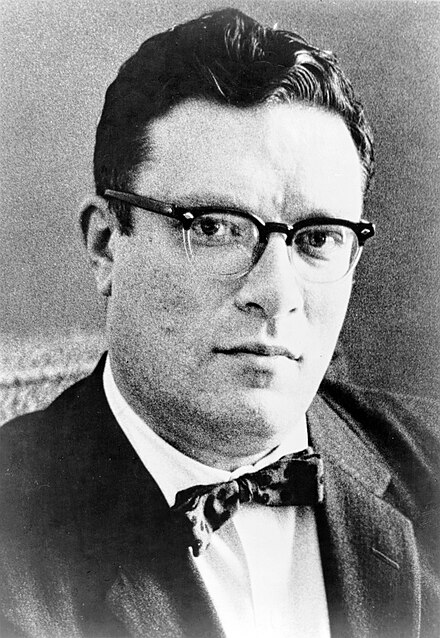
Every Jan. 2, fans of anything from robots to space operas celebrate Science Fiction Day — a date that commemorates the birthday of Isaac Asimov, one of the genre’s most iconic writers. Asimov introduced complex ethical questions about robotics and societal evolution, helping elevate science fiction from pulp entertainment into a respected literary genre. However, Science Fiction Day is not only a tribute to him; it is also a chance to reflect on the wider impact of science fiction, both as a genre and as a cultural force.
To explore this further, Dr. James Francis, senior lecturer in the Department of English, offers insight into the significance of science fiction. Francis is co-authoring two monographs on horror musicals and AI in science-fiction film, collaborating with former students from the English department and its Undergraduate Research (UPREP) Program.
“Science fiction represents literature that builds on our historical understanding of the world to ask, ‘What if?’ regarding the human condition in relation to science and technology, and quite often religion,” Francis said. “It doesn't have to focus on aliens, spaceships, time travel, robots or the like; however, those topics are foundational to much of the literature within the genre.”

Francis collaborates with Dr. Rich Cooper, an instructional associate professor in the English department, as a contributing editor for Marvels and Wonders: Reading, Researching, and Writing about Science Fiction and Fantasy (2024), an open educational textbook that highlights the enduring impact of early science fiction pioneers.
According to Marvels and Wonders, foundational writers include Mary Shelley, who is known as the “Mother of Science Fiction,” and Edgar Allen Poe, whose protagonist in The Unparalleled Adventure of One Hans Pfaall (1835) travels to the moon. Francis believes if anyone can be called the “Father of Science Fiction,” it is Poe.
“Over time, if we measure from something like Shelley's Frankenstein; or, The Modern Prometheus in 1818, the genre has certainly expanded, grown and adjusted to the times,” Francis said. “We certainly see more sci-fi focused on artificial intelligence now, but some concepts like the mad scientist remain consistent from Robert Louis Stevenson's The Strange Case of Dr. Jekyll and Mr. Hyde (1897) novel to Coralie Fargeat's The Substance (2024) film.”
Although both Stevenson’s novel and Fargeat's film are typically associated with Gothic literature and horror, respectively, they share a common foundation in advanced science — chemistry and biology — that drives their narratives, according to Francis.

“Much like the horror genre, science fiction reacts to real-life concerns and events throughout time, such as the development of atomic energy, space expeditions, groundbreaking medical procedures and theoretical concepts,” Francis said. “As long as humanity has the potential to advance and/or evolve, science fiction will ruminate on and document humanity’s progress and/or regression.”
Science fiction’s ability to blend with other genres — such as horror, fantasy or even westerns —complicates any effort to define it within a single genre. As Francis notes, science fiction continuously evolves in response to science and technology, which is what makes the genre relevant but difficult to categorize.
“The genre has never really been set in stone,” Francis said. “The War of the Worlds is regarded as classic science fiction, but its narrative contains elements of horror (fear, anxiety and dread) as a close relative of science fiction. If we look at a popular film franchise like Star Wars, it mixes science fiction with fantasy and the western.”
Francis believes that what unites the genre is its deep interest in exploring and evaluating humanity, especially when confronted with moral and existential dilemmas. It asks questions like: Who are we? How have we progressed? How have we regressed? What will become of us in the future?
“Science fiction typically provides a chance for an audience member to decide what choice they would make if faced with similar narrative conflicts,” Francis said, “and because our decision-making is informed by our background, the stories also engage with personal topics as themes: religion, politics, class and economics, gender and sex, ethnicity, life and death and the structure of what makes a civilization.”
As long as humanity has the potential to advance and/or evolve, science fiction will ruminate on and document humanity’s progress and/or regression.
Soon, Francis said, we will see an increased focus on AI and the environment in science fiction, as these aspects of life remain at the forefront of current conversations, legislation and global concern. In the meantime, he offers some recommendations.
“For anyone who is more visually inclined, aside from going directly to film adaptations of the classic literary works, sci-fi cinema is just as varied from Forbidden Planet (1956) to Alphaville (1965) to Invasion of the Body Snatchers (1956 and 1978 versions) to The Thing (1982) to Sunshine (2007). All films collectively address space travel, futuristic societies, alien invasion and environmental danger.”
